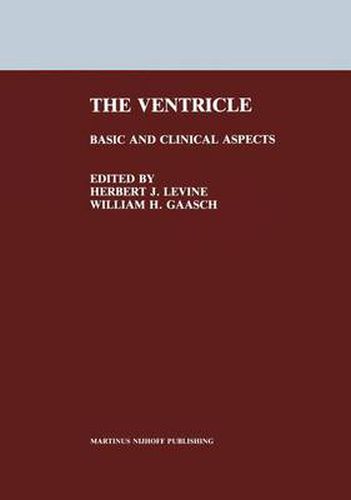Readings Newsletter
Become a Readings Member to make your shopping experience even easier.
Sign in or sign up for free!
You’re not far away from qualifying for FREE standard shipping within Australia
You’ve qualified for FREE standard shipping within Australia
The cart is loading…






This title is printed to order. This book may have been self-published. If so, we cannot guarantee the quality of the content. In the main most books will have gone through the editing process however some may not. We therefore suggest that you be aware of this before ordering this book. If in doubt check either the author or publisher’s details as we are unable to accept any returns unless they are faulty. Please contact us if you have any questions.
Cardiac anatomy had already been a subject of and its control in health and disease has been great interest for centuries when Harvey de- published. Studies of hypertrophy, heart failure, scribed the dynamic nature of blood flow, but ischemia, and infarction have been vigorously the concept of defining ventricular function was pursued in experimental animals and in human first introduced with the measurement of a subjects, and as a result new areas for study have emerged. These include the process of hypertro- mare’s blood pressure by Steven Hales in 1733. Amidst the important contributions of a number phy as an adaptive mechanism, the coronary vas- of European physiologists, the primal relation- cular reserve in hypertrophy, the role of the ship between the mechanical energy of the heart microvasculature in myocardial failure, active and the length of a myocardial fiber was enun- relaxation and other diastolic mechanisms that contribute to the syndrome of congestive heart ciated by E. H. Starling in 1912; this became known as the law of the heart.
Perhaps the failure, ventricular interaction and the role of the normal pericardium, ischemic-stunned- first major refinement of this law was suggested by Sarnoff and co-workers, who introduced the reperfused myocardium, and vasoactive drugs in concept of homeometric autoregulation to ex- the treatment of heart failure.
$9.00 standard shipping within Australia
FREE standard shipping within Australia for orders over $100.00
Express & International shipping calculated at checkout
This title is printed to order. This book may have been self-published. If so, we cannot guarantee the quality of the content. In the main most books will have gone through the editing process however some may not. We therefore suggest that you be aware of this before ordering this book. If in doubt check either the author or publisher’s details as we are unable to accept any returns unless they are faulty. Please contact us if you have any questions.
Cardiac anatomy had already been a subject of and its control in health and disease has been great interest for centuries when Harvey de- published. Studies of hypertrophy, heart failure, scribed the dynamic nature of blood flow, but ischemia, and infarction have been vigorously the concept of defining ventricular function was pursued in experimental animals and in human first introduced with the measurement of a subjects, and as a result new areas for study have emerged. These include the process of hypertro- mare’s blood pressure by Steven Hales in 1733. Amidst the important contributions of a number phy as an adaptive mechanism, the coronary vas- of European physiologists, the primal relation- cular reserve in hypertrophy, the role of the ship between the mechanical energy of the heart microvasculature in myocardial failure, active and the length of a myocardial fiber was enun- relaxation and other diastolic mechanisms that contribute to the syndrome of congestive heart ciated by E. H. Starling in 1912; this became known as the law of the heart.
Perhaps the failure, ventricular interaction and the role of the normal pericardium, ischemic-stunned- first major refinement of this law was suggested by Sarnoff and co-workers, who introduced the reperfused myocardium, and vasoactive drugs in concept of homeometric autoregulation to ex- the treatment of heart failure.